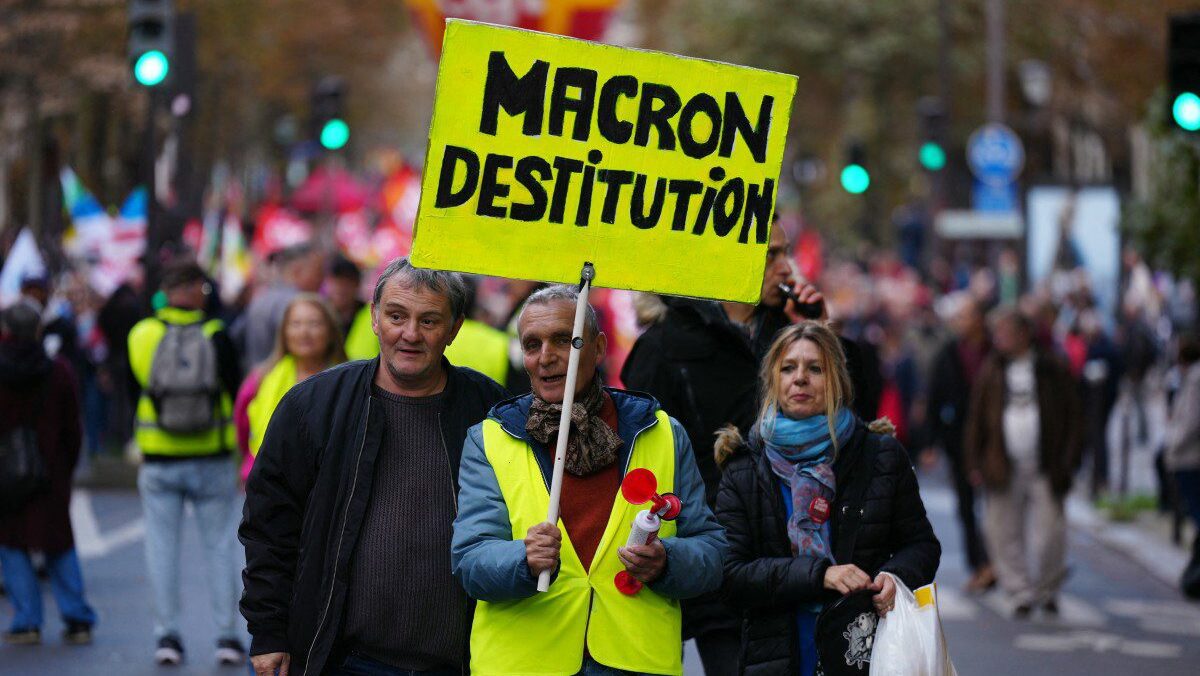
The French Left’s first attempt at impeaching President Macron failed on Tuesday—but they are likely to try again. The first motion of censure against Prime Minister Michel Barnier also fell through. Because Marine Le Pen abstained from voting, the leftist coalition is now accusing her and the Rassemblement National (RN) of wanting to “save the president’s skin.”
The New Popular Front (NFP) coalition, which came out on top in last July’s legislative elections but was unable to form a viable government, had announced that, deprived of power, it would use every means at its disposal to oppose both the president and the prime minister in protest. In September, MPs from the communist, socialist, ecologist, and La France Insoumise parties launched impeachment proceedings against Macron. The chances of the process succeeding were almost nil, as the constitution stipulates that a two-thirds vote in both the Assembly and the Senate is needed to overthrow the president. But the left-wing coalition wanted to send out a powerful political signal.
The road to examining their proposal was strewn with obstacles. The first stage was successfully completed with the acceptance of the resolution by the bureau of the National Assembly, where the NFP has a majority. But at the second stage, the Law Committee rejected the proposal by a very large majority on October 2nd. The decision was confirmed by a vote of the Conference of Group Presidents on October 8th, putting a definitive end to the procedure. The four left-wing group chairmen voted in favour, the three centrist group chairmen and the two right-wing group chairmen voted against. Marine Le Pen, for the Rassemblement National (RN), abstained.
The Left, therefore, blames her for the failure of the impeachment procedure, and cries foul, suggesting a de facto alliance between Macron and the RN: “So it was Ms. Le Pen who, in a way, saved Mr. Macron from impeachment,” said Mathilde Panot, chair of the La France Insoumise group. “The Rassemblement National is not an opposition to Michel Barnier’s government and to Emmanuel Macron, but rather the life insurance policy of the system,” she added.
The RN sees things differently, pointing out that the Left is inconsistent in hoping for its support on this vote after having made an alliance with Macron against the RN at the legislative elections.
Since the impeachment procedure had no chance of succeeding, Marine Le Pen saw no reason to align herself with the noisy but ineffective protest by the far left. For the time being, the RN intends to maintain its strategic position as a referee and keep up the pressure on the government. This choice is all the more essential given that the party of Le Pen and Bardella is currently before the courts in an eminently political trial over the employment of its European parliamentary assistants.
At the same time as the impeachment procedure failed, Barnier’s government was faced with its first motion of censure, also proposed by the left-wing coalition. The motion needed the support of the RN to be adopted, but Marine Le Pen had announced that she would not be joining the movement this time, as her party wished to give the Barnier government a chance, and once again to distance itself from the activism of the far Left by waiting for the right moment to make a statement.
With the arrival of the debates on the budget, and Barnier’s likely use of Article 49.3 of the Constitution to adopt the budget without a majority, as was the case in Élisabeth Borne’s time, several new motions of censure will certainly be put forward. The RN does not rule out joining them on the budget issue, or later, in January, on the occasion of new debates on migration policy.
